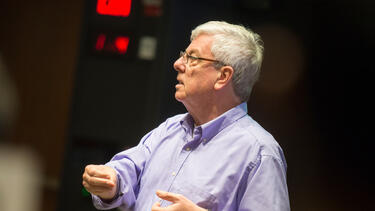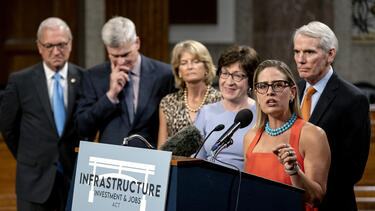Faculty Viewpoints
GE’s Split Unravels a Massive Management Mistake
General Electric CEO Larry Culp announced this week that the company would split into three separate firms. Prof. Jeffrey Sonnenfeld writes that Culp was acknowledging the failure of an approach—the highly diversified industrial conglomerate—that dates back to Jack Welch’s tenure in the 1980s.

No, Machiavelli Did Not Say It’s Better to Be Feared Than Loved
The leadership lesson attributed to Machiavelli’s The Prince is one of many truisms that are frequently distorted for ideological purposes, writes Yale SOM’s Jeffrey Sonnenfeld. Such distortions can lead to flawed decision-making in the boardroom, according to Sonnenfeld.

How Leaders Can Fend Off Unwanted Email Introductions
Leadership expert Jeffrey Sonnenfeld offers advice for CEOs who are repeatedly ambushed by former associates playing online matchmaker.

Soaring COVID Rates in the South Show Why We Need Vaccine Mandates
The data shows that low vaccination rates in southern states are leading to thousands of needless deaths, write Albert Ko of the Yale School of Public Health and Anjani Jain and Jeffrey Sonnenfeld of Yale SOM.

Exploring Alternative Futures
Professor Paul Bracken has spent a lifetime studying the complex systems like international business, technology, and the military. A pioneer of scenario planning, he looks at how organizations really work and how they both drive and are shaped by major trends in order to predict possible futures.

COVID Outcomes in Two States Show That Leadership Matters
Yale SOM’s Anjani Jain and Jeffrey Sonnenfeld on how the rhetoric and policies of Governors Ron DeSantis of Florida and Ned Lamont of Connecticut have shaped their states’ responses to the resurgence of COVID-19—with profound implications for their constituents.

When Should CEOs Speak Out?
Many corporate leaders are overcoming their hesitancy about wading into divisive social issues. Prof. Jeffrey Sonnenfeld offers some guidelines for when and how business leaders should weigh in.

Leadership Lessons for Biden after the Afghanistan Withdrawal
Yale SOM's Jeffrey Sonnenfeld offers advice for the president on recovering from his missteps, drawn from Sonnenfeld's decades of studies of business and political leadership.

Can Social Entrepreneurship Complement Public Health Systems?
While social entrepreneurs are often criticized for building parallel systems alongside public institutions, writes Yale SOM’s Teresa Chahine, in the case of public health they can serve as a pathway to strengthen and complement the existing public health system, especially in low-resource settings.

The Compromise Infrastructure Bill Reflects the Public’s Priorities
The infrastructure bill that advanced in the Senate this week doesn’t please partisans on either side. But an analysis from Yale SOM’s Jeffrey Sonnenfeld shows a rough correspondence with the objectives favored by the public in polls.
